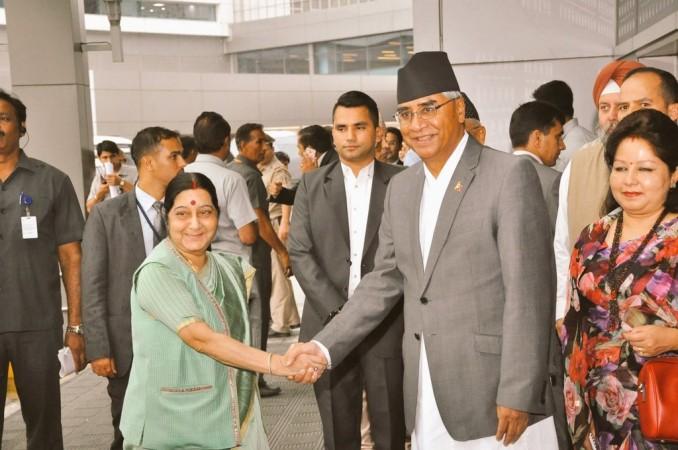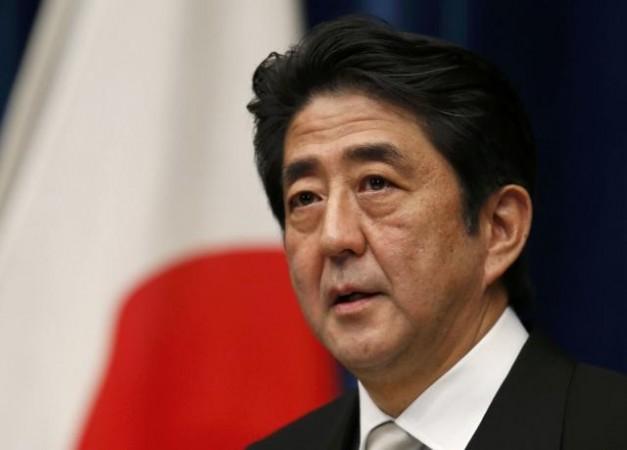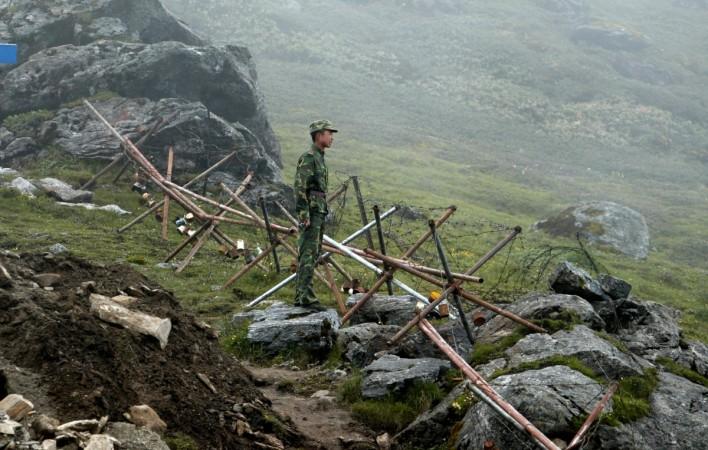While China is already wary of Japanese Prime Minister Shinzo Abe's visit to India on September 13, it also seems to be a tad cautious about Nepal Prime Minister Sher Bahadur Deuba's four-day visit to India. These visits are especially significant now, considering the Indo-China standoff over the Doklam plateau has entered the third month.

Additionally, Beijing also seems to be playing safe on what it says about the India-Nepal diplomatic relations and explained that China is happy to see good relations between the two countries.
"In the 21st century, international relations is not a zero sum game or the counter balancing between countries. China is happy to see the development of sound and healthy relations between Nepal and India," the Press Trust of India quoted Chinese Foreign Ministry spokesperson Hua Chunying as saying.
While China may say that it is happy for India and Nepal and their developing relations, Abe's plans to visit India seem to have miffed the nation. Even though Japan has said that Abe's visit had been planned a long time ago and is meant to help the two countries strengthen maritime cooperation and attend a ceremony for high-speed rail link, using Japanese bullet-train technology, sources are said to have told People's Daily that Abe's visit is, in fact, meant to push "India to contain China."
"Abe is a leader with a clear purpose. The timing of the announcement serves certain purposes, though Japanese media have come out to claim his visit has long been planned," it quoted Lv Yaodong, director of the Institute of Japanese Studies' Department of Japanese Diplomacy at the Chinese Academy of Social Sciences, as saying.
Hu Zhiyong, a research fellow at the Institute of International Relations of the Shanghai Academy of Social Sciences, also told the Global Times on Friday that this is Tokyo's way of confronting China.

"India and Japan see China as a common opponent ... they have been strengthening cooperation on nuclear issues and national defense as well as forming the 'freedom corridor' to rival China's Belt and Road initiative," Zhiyong said. "Japan's public statement at such a sensitive time is to strengthen India's dependence on Japan and to counteract the pressure from China in the East China Sea."
China's concerns over Abe's visit could have resulted from the fact that Japanese ambassador in India Kenji Hiramatsu had earlier spoken in favour of India and said that Japan has been keeping an eye on the conflict, whereas Nepal has always maintained a neutral stance and said that Beijing and New Delhi should solve the issue through diplomatic talks.
"We understand that the standoff in the Doklam area has been ongoing for nearly two months. As it can affect the stability of the entire region, we have been watching the situation very closely," Hiramatsu had said. "We also understand that India has a treaty understanding with Bhutan, that's why Indian troops got involved in the area."

China has once again said that the ball is in India's court and withdrawing of troops from the border in Sikkim is a prerequisite for resolving the conflict. "India must immediately and unconditionally withdraw its trespassing border troops and equipment to the Indian side of the boundary, as the Doklam (Dong Lang) region is undisputed Chinese territory," a commentary on Xinhua said.
"Following India's logic, if China ever feels that India's infrastructure construction in the border region threatens Chinese security, China can openly send troops to Indian territory to stop it. If India's logic is tolerated, we might as well throw international norms out the window."
















